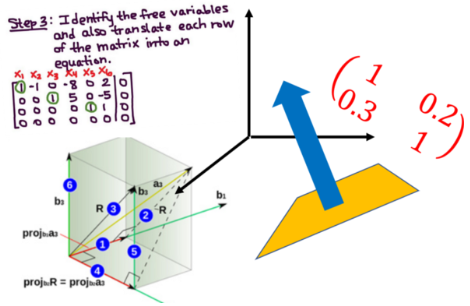This article was written by Tirthajyoti Sarkar. Below is a summary. The full article (accessible from link at the bottom) also features courses that you could attend to learn the topics listed below, as well as numerous comments. We also added a few topics that we think are important and missing in the original article.
Statistics
- Data summaries and descriptive statistics, central tendency, variance, covariance, correlation,
- Basic probability: basic idea, expectation, probability calculus, Bayes theorem, conditional probability,
- Probability distribution functions — uniform, normal, binomial, chi-square, student’s t-distribution, Central limit theorem,
- Sampling, measurement, error, random number generation,
- Hypothesis testing, A/B testing, confidence intervals, p-values,
- ANOVA, t-test
- Linear and logistic regression, regularization
- Decision trees
- Robust and non-parametric statistics
Linear Algebra
- Basic properties of matrix and vectors — scalar multiplication, linear transformation, transpose, conjugate, rank, determinant,
- Inner and outer products, matrix multiplication rule and various algorithms, matrix inverse,
- Special matrices — square matrix, identity matrix, triangular matrix, idea about sparse and dense matrix, unit vectors, symmetric matrix, Hermitian, skew-Hermitian and unitary matrices,
- Matrix factorization concept/LU decomposition, Gaussian/Gauss-Jordan elimination, solving Ax=b linear system of equation,
- Vector space, basis, span, orthogonality, orthonormality, linear least square,
- Eigenvalues, eigenvectors, and diagonalization, singular value decomposition (SVD)
Calculus
- Functions of single variable, limit, continuity and differentiability,
- Mean value theorems, indeterminate forms and L’Hospital rule,
- Maxima and minima,
- Product and chain rule,
- Taylor’s series, infinite series summation/integration concepts
- Fundamental and mean value-theorems of integral calculus, evaluation of definite and improper integrals,
- Beta and Gamma functions,
- Functions of multiple variables, limit, continuity, partial derivatives,
- Basics of ordinary and partial differential equations (not too advanced)
Discrete Math
- Sets, subsets, power sets
- Counting functions, combinatorics, countability
- Basic Proof Techniques — induction, proof by contradiction
- Basics of inductive, deductive, and propositional logic
- Basic data structures- stacks, queues, graphs, arrays, hash tables, trees
- Graph properties — connected components, degree, maximum flow/minimum cut concepts, graph coloring
- Recurrence relations and equations
- Growth of functions and O(n) notation concept
Optimization, Operations Research
- Basics of optimization —how to formulate the problem
- Maxima, minima, convex function, global solution
- Linear programming, simplex algorithm
- Integer programming
- Constraint programming, knapsack problem
- Randomized optimization techniques — hill climbing, simulated annealing, Genetic algorithms
To read the full article, click here.
DSC Resources
- Invitation to Join Data Science Central
- Free Book: Applied Stochastic Processes
- Comprehensive Repository of Data Science and ML Resources
- Advanced Machine Learning with Basic Excel
- Difference between ML, Data Science, AI, Deep Learning, and Statistics
- Selected Business Analytics, Data Science and ML articles
- Hire a Data Scientist | Search DSC | Classifieds | Find a Job
- Post a Blog | Forum Questions

